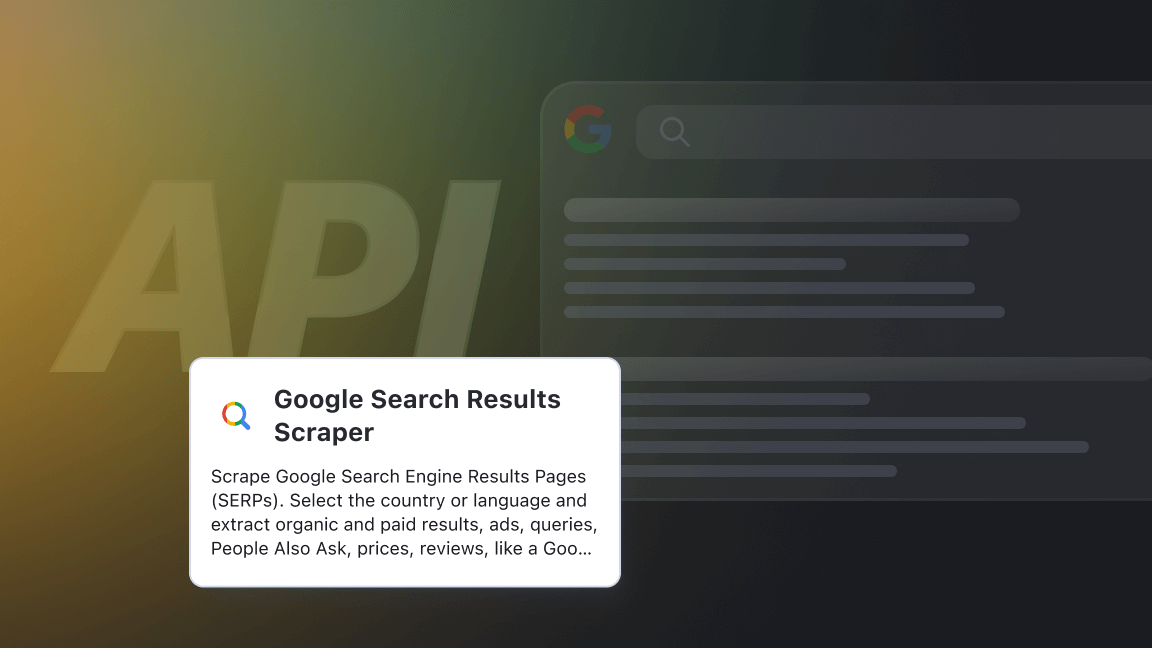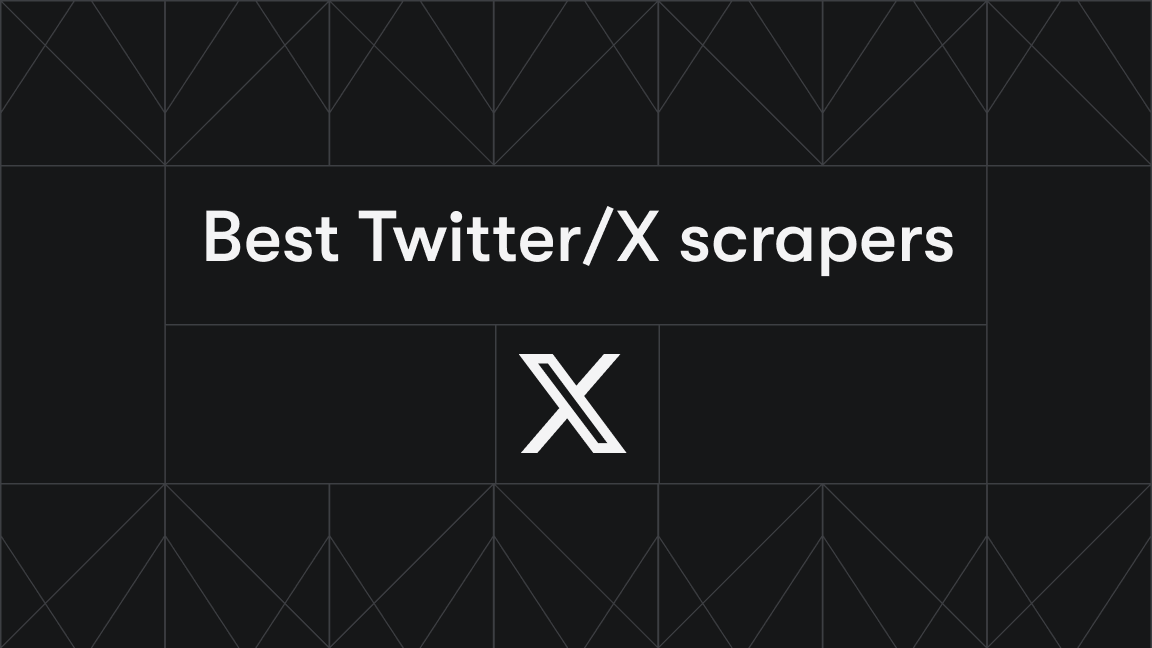If you work in lead generation, local SEO, or outbound sales, you've probably spent hours manually copying phone numbers from Google Maps, Yelp, or industry directories into a spreadsheet. What starts as a quick task to grab 20 contacts turns into hours of clicking through listings and copy-pasting data.
The problem worsens at scale. Collecting phone numbers for 1,000 restaurants across five cities becomes a multi-week project.
Phone number extractors and scrapers automate this entire process. Some extract numbers from documents you already have, others scrape fresh data directly from websites, and the most capable tools do both while collecting emails, addresses, and social profiles.
This guide covers six different approaches, from free browser extensions to enterprise-grade cloud scrapers that can collect 100,000+ contacts automatically.
Quick comparison: phone number extraction tools
| Tool | Type | Best for | Pricing |
|---|---|---|---|
| Google Maps Scraper | Cloud scraper | Local business data at scale | Usage-based, $5 free credit monthly |
| Contact Details Scraper | Universal website scraper | Extracting contacts from any website | $0.002/page, $5 free credit monthly |
| Social Media Leads Analyzer | Multi-platform scraper | Social media data collection | $20/1,000 results, $5 free credit monthly |
| Phone Number Extractor (Chrome) | Browser extension | Quick single-page extraction | Free |
| Regex tools (ConvertCSV) | Text parsing tool | Extracting from documents | Free |
| Contact data APIs (Hunter, ZoomInfo) | Database API | Pre-verified B2B contacts | $500-$5,000+/month |
Phone number extractors vs. scrapers (what's the difference?)
Before we get into specifics, let's clear up some confusion. People use "extractor" and "scraper" interchangeably, but they solve different problems.
Phone number scrapers go hunting for fresh data. You point them at Google Maps or a company website, and they crawl through pages collecting phone numbers, emails, and whatever else you're looking for. The data comes straight from live websites, so it's as current as it gets.
Phone number extractors work with data you already have. Maybe you exported a list from your CRM, or you've got a PDF full of contacts from a conference. An extractor takes that existing text and pulls out anything that looks like a phone number.
Top phone number scrapers for market research and prospecting
These are the tools that actually go out and collect contact data for you. Set them up once, and they'll keep your databases fresh.
1. Google Maps Scraper
This is the workhorse for anyone who needs local business data. Google Maps Scraper pulls every piece of information Google Maps has about a business - phone numbers, emails, websites, addresses, ratings, reviews, opening hours, you name it. The best part? It completely bypasses Google's usual 120-result limit.

Pricing: Usage-based, pay only for what you scrape. Free plan includes $5 monthly credit (around 2,500 places)
Key features:
- Extracts phone numbers, emails, websites, addresses, and social media profiles (8 platforms)
- Business intelligence: ratings, review counts, opening hours, price range, amenities
- Bypasses Google Maps' 120-result limit - extract unlimited places per search
- Geolocation precision: search by city, coordinates, or custom polygons
- Scheduled runs for automatic daily/weekly/monthly collection
- Exports to JSON, CSV, Excel, HTML, XML
- Native integrations with Google Sheets, Airtable, Zapier, Make
- Optional add-ons: leads enrichment (employee profiles, LinkedIn, work emails), company contact enrichment
Limitations: Advanced geolocation features have a learning curve. Costs scale with very large extractions (100K+ places). Email quality depends on what businesses publish on their websites.
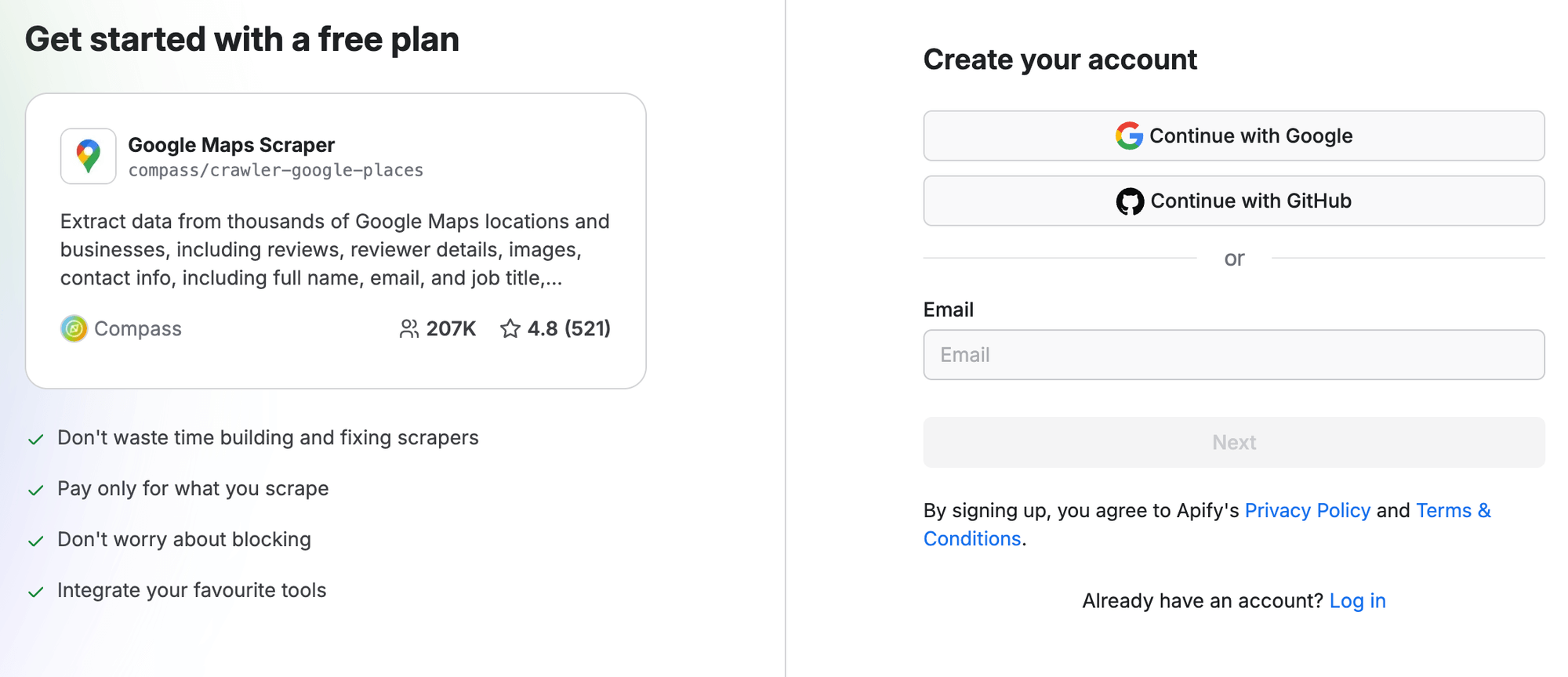
2. Contact Details Scraper
This tool is more of a generalist - it works on any website. Give it a company website or a list of URLs, and it crawls through looking for contact information. It grabs phone numbers from both proper HTML links and from plain text, finds email addresses, and discovers social media profiles across 13 different platforms.
Pricing: $0.002 per page. With the $5 free plan, that's around 2,500 pages you can scrape for free each month.

Key features:
- Extracts emails, phone numbers (from links and plain text), social media profiles (13 platforms)
- Merge contacts feature consolidates all info from subpages into single rows
- Customizable crawling: set link depth, stay within domain, limit total pages
- Email validation built-in
- Optional add-ons: leads enrichment (employee profiles), social media enrichment (follower counts, verification)
- Residential proxy option for strict anti-scraping sites
- Exports to JSON, CSV, Excel, HTML, XML
Limitations: Plain text phone numbers may include false positives. Quality depends on visible website contact info. Enrichment features cost extra. Crawling deep sites can be slow if depth is set high.
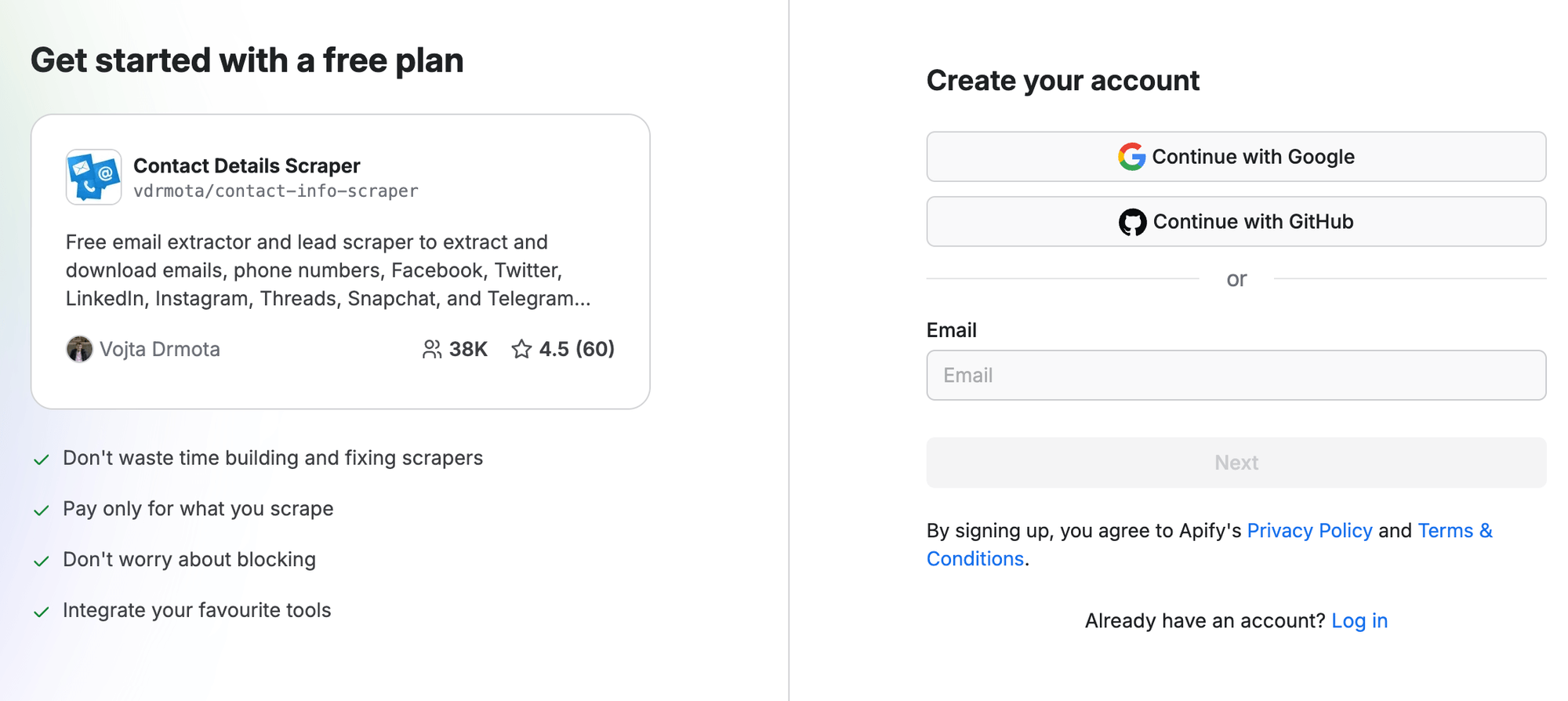
3. Social Media Leads Analyzer
This one takes a different approach. You give it website URLs, and it does three things: scrapes contact details from those sites, finds all the social media links, then actually scrapes detailed profile data from each of those social accounts.

Pricing: $20 per 1,000 websites analyzed. Free plan gives you $5 credit (about 200+ sites)
Key features:
- Extracts emails and phone numbers from websites
- Scrapes detailed profile data from 8 platforms: Instagram, LinkedIn, Facebook, TikTok, YouTube, Twitter, Pinterest, Discord
- Profile metrics: username, followers, following, bio, external URLs, verification status
- Engagement data: post counts, video counts, total views, likes
- Platform-specific data: ad status, seller info, account creation date
- All data combined in single output
- Exports to JSON, CSV, Excel, HTML
Limitations: Somewhat more expensive ($20/1,000 vs $0.002/page for other scrapers). Slower processing since it visits multiple platforms per site. Limited to 8 platforms.
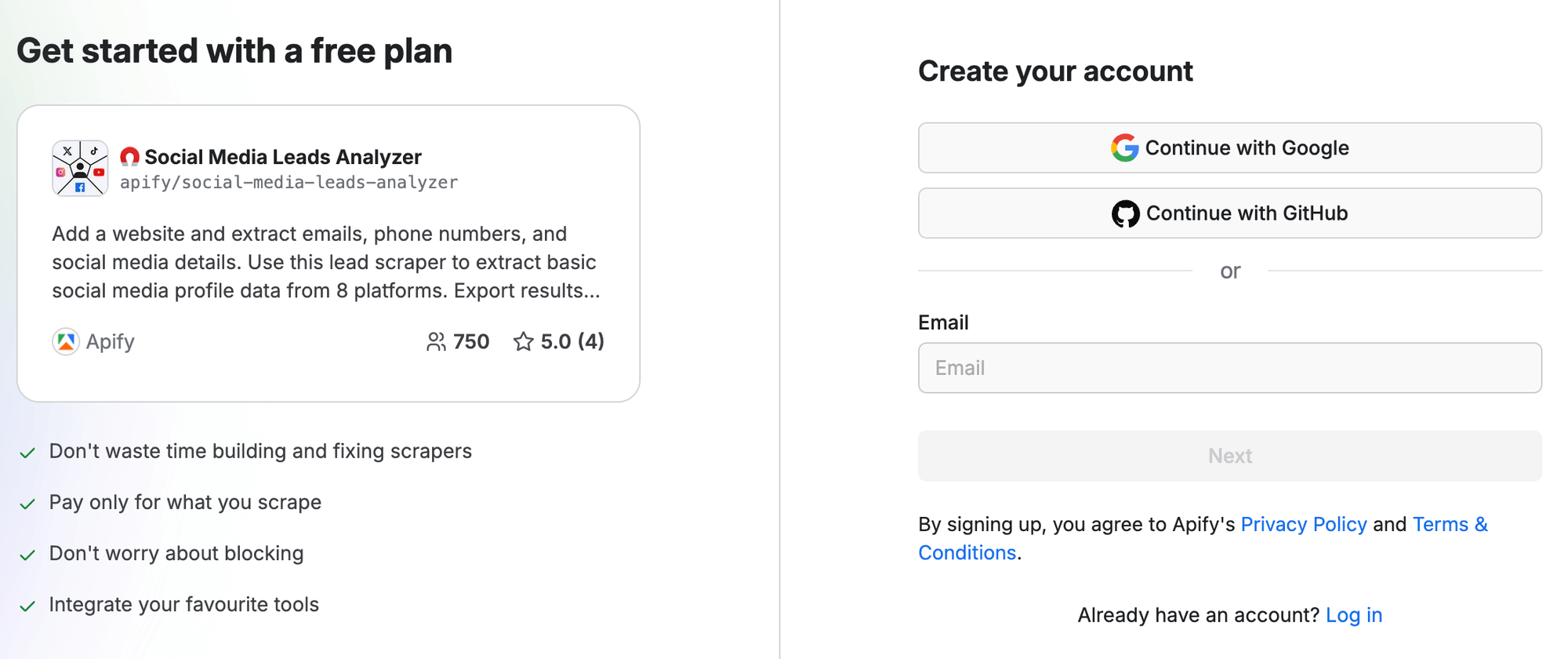
Browser extensions and phone number extractors
Maybe you don't need 10,000 contacts. Maybe you just need to quickly grab phone numbers from a single directory page, or you want to clean up a list you already have. For those situations, these free tools work well.
4. Phone Number Extractor (Chrome extension)
Install this extension, visit any webpage, click the icon, and it instantly pulls out all the phone numbers on that page. You can copy them to your clipboard or export to CSV.
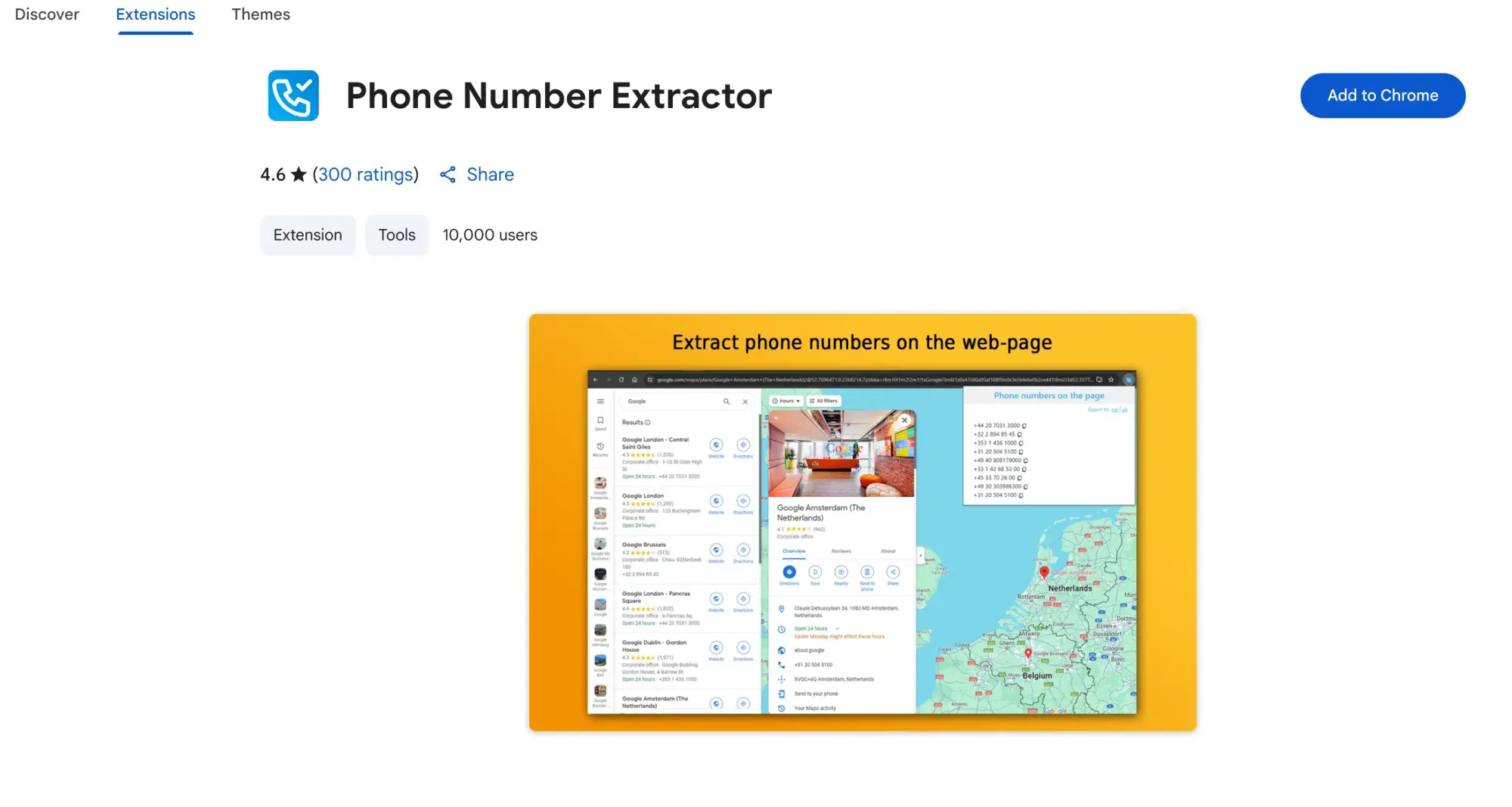
Pricing: Free
Key features:
- One-click extraction from current page
- Export to CSV/Excel or copy to clipboard
- No setup, account, or API keys required
- Works on any website
- Handles JavaScript-rendered content
Limitations: Manual operation - you must open each page yourself. No automation or scheduling. Your IP is exposed, risking blocks on protected sites. Not scalable beyond ~50 contacts. No associated business data like names or addresses.
When to use it: Quick research on 1-2 pages, testing data sources before committing to larger extraction.
When to avoid it: Google Maps, LinkedIn, or platforms with anti-scraping. Anything over 50 contacts. Situations where you need business context.
5. Regex-based tools (ConvertCSV, LambdaTest)
These aren't scrapers - they're text processors. You paste in text or upload a file, and they use pattern matching to find anything that looks like a phone number. Useful for one specific thing: extracting phone numbers from data you already have.
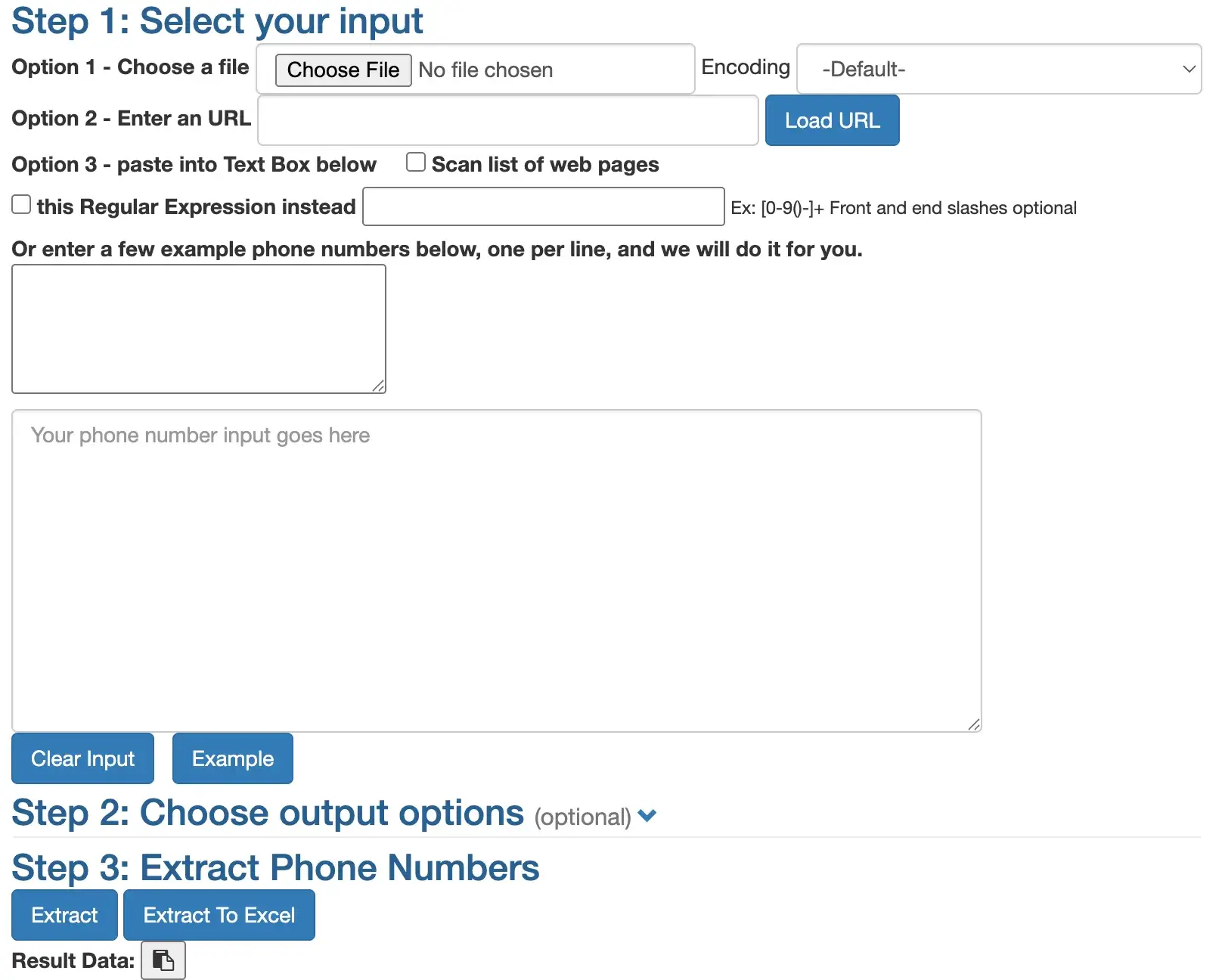
Pricing: Free
Key features:
- Text processing: paste text or upload files (PDF, TXT, HTML, CSV)
- Pattern matching for various formats (US, international)
- Multiple tools: ConvertCSV (most features), LambdaTest (cleanest UI), PhraseFix (US only)
- No account required
- Export to TXT, CSV
Limitations: No web scraping capability - only processes text you provide. No business context or validation. Can include false positives from number-like text. Some tools limited to specific regions (US only).
When to use it: Processing conference PDFs, cleaning CRM exports, extracting from documents you already have.
Contact data APIs
These are pre-built databases you query through an API instead of scraping data yourself. Companies like ZoomInfo, Apollo, and Hunter maintain massive databases of business contacts, and you pay for access.
6. Contact data APIs (Hunter, ZoomInfo, Apollo)
Pricing: $500-$5,000+/month (often requires annual contracts)
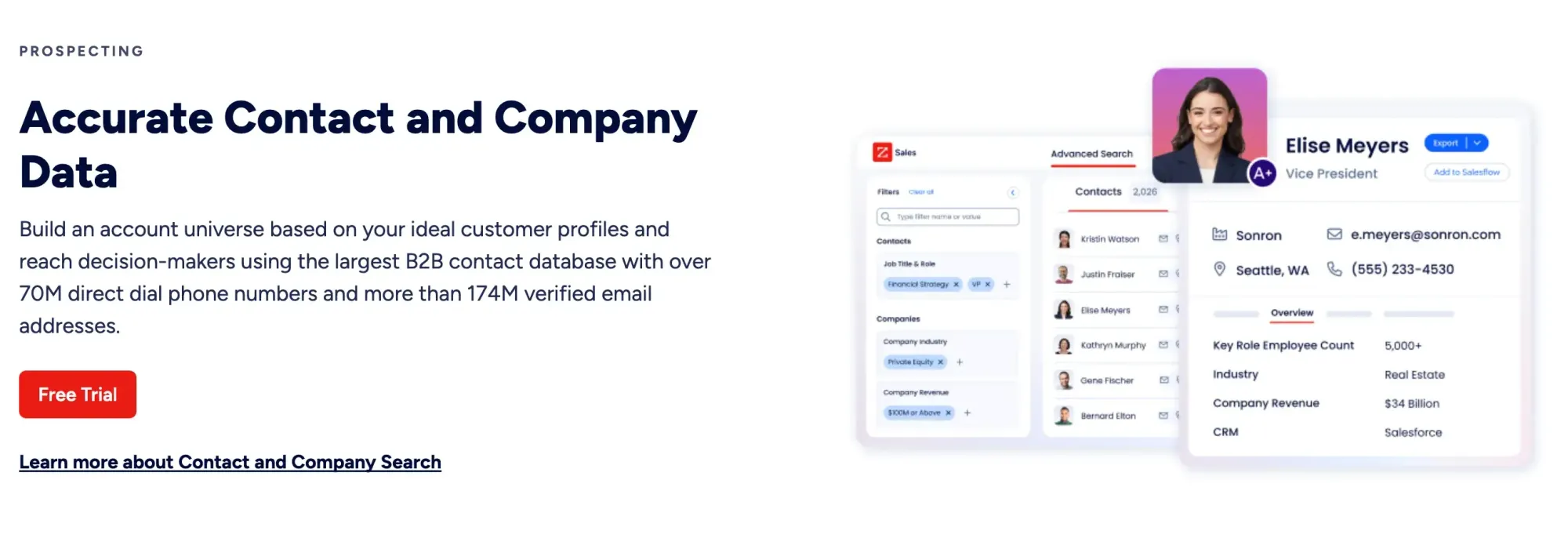
Key features:
- Pre-verified phone numbers and emails
- Company matching by name, domain, or industry
- Decision-maker filtering by job title, seniority
- API access for programmatic lookup
- Native CRM integrations for Salesforce, HubSpot
- GDPR compliance built in
- Data accuracy guarantees with SLAs
Limitations: Very expensive ($500-$5,000+/month typical). Data gets stale quickly. Poor coverage of small businesses and niche markets. Annual contracts create vendor lock-in. Monthly credits expire. Limited to what's in their database.
When it makes sense: Enterprise sales teams with substantial budgets, exclusively targeting Fortune 5000 companies where deep CRM integration justifies the premium.
When it doesn't: Small teams, local business research, niche markets, or anyone who needs actually current data.
Why collect phone numbers at scale?
The obvious reason is outreach, but there are plenty of use cases where you're not planning to call anyone. Market researchers analyze industry distribution. Competitive intelligence teams track competitor locations. Real estate analysts map properties across regions.
| Use case | How it helps |
|---|---|
| B2B prospecting | Build targeted lists 10x faster |
| Competitive intelligence | Map competitor locations and expansion |
| Market research | Analyze industry saturation and gaps |
| Partnership development | Find partners and vendors at scale |
| Real estate analysis | Track properties, contractors, listings |
How to choose the right tool
The right phone number scraper or extractor depends on your data source, budget, and scale.
Choose cloud scrapers (Google Maps Scraper, Contact Details Scraper, Social Media Leads Scraper) if you need fresh data from websites, thousands of contacts, automation with scheduling, or integration with your tools. Best for research teams, marketing agencies, business development, and competitive intelligence.
Choose browser extensions if you need fewer than 50 contacts, quick one-time extraction, or a free solution with zero setup. Best for freelancers and ad-hoc research. Warning: Don't use on Google Maps or LinkedIn - you'll get blocked.
Choose regex tools if you need to extract from documents you already have or clean existing lists. Best for processing conference lists or CRM exports. Note: These don't collect new data.
Choose contact data APIs if you need pre-verified Fortune 5000 contacts and have a large budget ($10K+/year).
The scale problem
Manual copy-paste gets you about 50 contacts in 2 hours. Chrome extensions improve that to maybe 200-500 contacts with manual clicking. Cloud scrapers collect 10,000-100,000+ contacts automatically while you work on other things. The cost is $5-50, depending on volume - a fraction of what your time is worth.
How teams use Apify to collect phone numbers
The real advantage isn't just speed - it's consistency. Teams schedule scrapers to run weekly or monthly, automatically building fresh datasets without manual work.
Market research firms use Google Maps Scraper to analyze business density across regions, identifying market gaps for clients. Real estate investors run weekly searches for new FSBO listings that get added to Google Sheets automatically. Business development teams combine Contact Details Scraper with target company lists to extract phone numbers and LinkedIn profiles. Competitive intelligence analysts schedule runs to monitor when competitors open new locations.
The common thread: set it up once, let it run on autopilot.
Start collecting phone numbers at scale
If you're still manually collecting phone numbers, you're spending hours on work that can be automated in minutes. Free tools work for small projects, but if you're building contact databases regularly, cloud scrapers give you better data faster.
Google Maps Scraper is the best starting point for local businesses - it bypasses Google's limits and gives you complete contact details. Contact Details Scraper works for any website. Social Media Leads Analyzer adds social profile data on top.
All three Apify scrapers include $5 in free monthly credits, which gets you around 2,500 places or pages to start. Try one, see how much time it saves, and scale from there.





